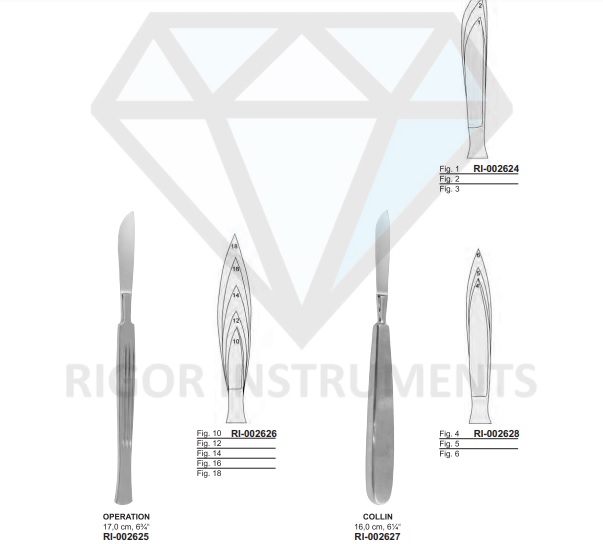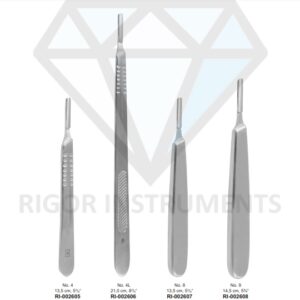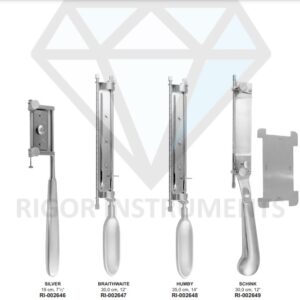Surgical Knives (RI-002624)
Surgical knives, also known as surgical scalpels, are specialized cutting instruments used by medical professionals and surgeons in various surgical procedures. To ensure clear and accurate incisions, these knives are made with the finest accuracy and sharpness. Surgical knives typically have two components: a handle and a removable blade. Stainless steel is frequently used for the handle, giving surgeons a secure and pleasant grip. Blades come in a variety of sizes and forms to accommodate various surgical needs. Blades most frequently come in straight, curved, and hooked designs.These knives’ accuracy and fine edge allow surgeons to do precise incisions with little damage to surrounding tissue, which speeds up recovery and lessens pain for patients. The use of surgical knife is essential to getting good surgical results.
Detailed Description
Technical Specifications
Packaging and Shipping
Related Products
Reviews
Detailed Description
Lorem ipsum dolor sit amet, consectetur adipiscing elit. Ut elit tellus, luctus nec ullamcorper mattis, pulvinar dapibus leo.
Technical Specifications
Lorem ipsum dolor sit amet, consectetur adipiscing elit. Ut elit tellus, luctus nec ullamcorper mattis, pulvinar dapibus leo.
Packaging and Shipping
Lorem ipsum dolor sit amet, consectetur adipiscing elit. Ut elit tellus, luctus nec ullamcorper mattis, pulvinar dapibus leo.
Related Products
Related products
-

Scalpel Handle # 3L (RI-S-1004)
View More -
Sale!

Scalpel Handles (RI-002605)
$12.00Original price was: $12.00.$11.00Current price is: $11.00. View More -

Scalpel Handle # 4 (RI-S-1002)
View More -
Sale!

Resection Knives (RI-002646)
$42.00Original price was: $42.00.$39.00Current price is: $39.00. View More
Reviews
Reviews
Add a review
Be the first to review “Surgical Knives (RI-002624)” Cancel reply
You must be logged in to post a review.












Reviews
There are no reviews yet.